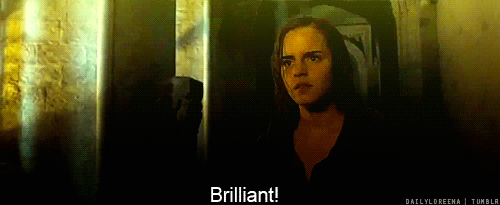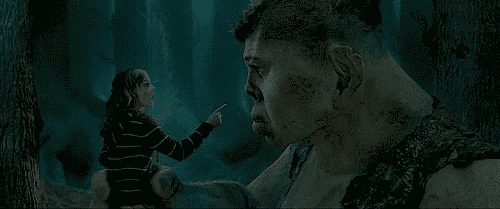Magical Creatures That Deserve Their Own Version of SPEW
The creatures in Harry Potter are enchanting, but are they all treated with respect? Hermione was a girl on a mission when she created the Society for the Promotion of Elfish Welfare (also known as SPEW). While she focused her energy on helping out house-elves, many other magical creatures still need justice and representation. Hermione can’t reform the entire system by herself!
Here are just a few creatures who could benefit from someone like Hermione fighting for their rights.
Centaurs
Centaurs don’t think much of Ministry of Magic classifications. In fact, they fought for the right to be categorized as “beasts” instead of “beings” because they didn’t feel like they belonged in the same grouping as vampires or hags. While the Ministry reluctantly accepted their self-classification, they still treat centaurs poorly throughout the events of the Harry Potter books. Umbridge calls them “filthy half-breeds” and “creatures of near-human intelligence.“ Even though they appear to be half-human, half-horse, centaurs are their own species. Firenze shows that centaurs are masters of Divination. They can even perform nonverbal magic, which is not easy. Centaur communities are tight-knit and have a deep connection with nature. The Ministry of Magic oppresses centaurs by taking away their territory. I can’t help but notice that this is similar to how the United States’ government forced indigenous people off of their lands.
Werewolves
Werewolves, or lycanthropes, are a pretty popular magical creature. They are normal humans, Muggle or magical, who turn into wolf-like monsters at the full moon. Werewolves aren’t born; they are made by other werewolves. People do not typically choose to turn into a wild, vicious animal once a month. The results of being bitten are life-changing. Lupin tells Harry that when most witches and wizards learn about his transformation, they can hardly look at him. Through Lupin, we also learn that werewolves struggle to find jobs because they are considered untrustworthy. This is ignorant because werewolves have no control over themselves when they are transformed (unless they are taking Wolfsbane Potion, but it’s incredibly difficult to make). A society for werewolf rights could help to educate the magical community on lycanthropy.
Giants
Giants are more than just tall: They are a society of magical creatures with language and culture. They have a political system within their tribes too. The magical community not only fears giants, but they also seem to hate them. Hagrid is a gentle, caring soul, yet when Rita Skeeter outs him as a half-giant, many parents call for his resignation from Hogwarts. When Madame Maxime is asked about her obvious giant genes, she is horrified and offended. Giants may have a reputation for being violent within their own tribes, but I think the magical world is just uneducated about their culture. If witches and wizards learned a bit more about giants, maybe the negative stigma could be replaced with cooperation and understanding.
Witches and wizards tend to see magical creatures as objects to be used. Magical folk usually do not question whether or not these creatures are being treated with respect. Does anyone ask if Dementors want to be sucking out souls all day long? It seems that Hermione is the only one who points out that the blind dragon in Gringotts is horribly abused. Characters like Hagrid see the beauty in potentially dangerous creatures, and Dumbledore shows empathy by helping outcast beings. Magical culture needs reform when it comes to attitudes about these fantastic beasts.
Which magical creature do you think deserves their own version of SPEW?





